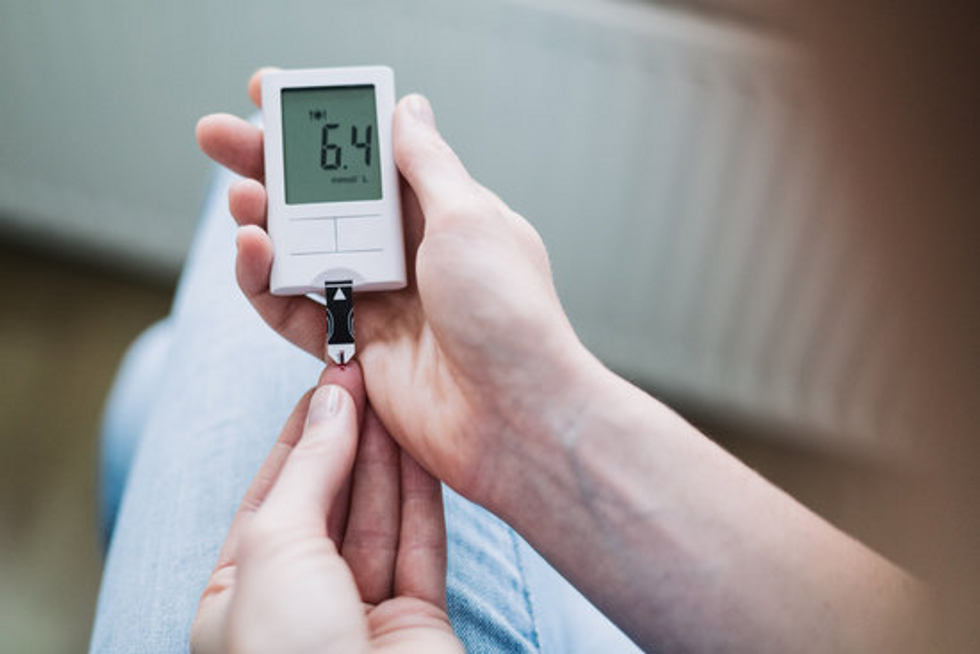In today's digitally-dominated and tiring world, we are more disconnected from our physical selves than ever before. Some people walk around "feeling fine" for months before becoming aware that they are sick and require medical attention. Others avoid medical checkups because of a lack of time or the fear of doctors. Most of us never stop to listen to our bodies. Staying on top of your health goes beyond seeing your doctor once a year. Advances in technology have also brought advances in home medical testing, allowing you the ability to privately and conveniently know your health status without leaving the comfort of your home. Testing yourself at home also help reduce the time spent in hospitals waiting rooms and the co-pays. Below are some health tests you can do at home.
STD's test
Most people are not aware that they are infected until advanced symptoms appear. This may cause them to pass the infection on to other people without knowing it. If left untreated, many sexually transmitted diseases can cause serious health complications. Different STDs require different test kits. EverlyWell Reviews provide a vast variety of quality, accurate test to suit a range of health concerns and budget. Sexually transmitted disease tests are straightforward and should be carried out routinely. In-home oral HIV test kits, for example, allow you to take the test in private by swabbing your upper and lower gums with the test stick. You insert the test stick into a vial containing a specific solution and receive the results after only 20 minutes. Different Chlamydia and gonorrhea test kits allow you to conduct this test at the comfort of your home by simply peeing on a strip and waiting for a few minutes for results.
Cholesterol test
High cholesterol has been linked to strokes, heart attacks, and many more life-threatening diseases. Many people are unaware of their high cholesterol, which puts them at risk of getting heart disease. Home cholesterol test kits allow you to get results within twenty minutes in the comfort of your home. Most cholesterol test kits work by pricking your finger with a lancet and you gently squeeze a few drops of blood onto a test strip. The results are usually received after a few minutes. Some testing kits use a small machine to indicate how much cholesterol, there is in the blood sample.
Thyroid Test
The thyroid controls your metabolism, helps regulate the body's temperature levels and plays a significant role in general health. When the thyroid hormone expressions are imbalanced, you may start experiencing symptoms such as weight gain/loss, fatigue, menstrual or fertility problems, dry skin and more. There are different ways of testing for thyroid problems. One of the easiest ways is by analyzing the body's basal temperature through underarm testing using a thermometer. The average underarm temperature is 97.8-98.2 deg F, if your reading is consistently lower than this then you most likely have hypothyroidism.
Melanoma test
The first symptom of melanoma is usually the appearance of a new mole or change in an existing mole. A complete body exam that checks for moles and transformations in old moles should be conducted once every month. Scan your entire body beginning with your face and working downwards, not forgetting the groins, fingernails, and areas between the toes. The ABCDE guidelines provide a useful way of monitoring and detecting early signs of melanoma. The ABCDE guidelines stand for;
i. Asymmetry- Check to see if one side of the mole does not match the opposite side
ii. Border- Check if the edges of the mole are ragged, blurred or just irregularly.
iii. Color – Check to see if the color is the same all over or is of different shades.
iv. Diameter- Check for any mole that is 6mm or larger.
v. Evolving- Check the mole for any changes in terms of size, color or other traits like itching.
Dementia
Dementia is a persistent disorder of mental processes caused by brain disease or injury. Symptoms of dementia may include memory disorder, impaired reasoning, and personality disorder. A simple test that can be done at the comfort of your home to check for dementia is the clock test. This test can be conducted by taking a blank paper and drawing clocks indicating different times. The drawings appear misshapen and numbers out of place in people developing dementia.
It can be advantageous and helpful for patients to take an active role in monitoring their health. Although these simple health tests make it easier for you to detect health issues early, it is advisable that you keep your doctor in the loop as he may help you better understand the results and find out whether a follow-up test is required.




 teenhorseforum
teenhorseforum















